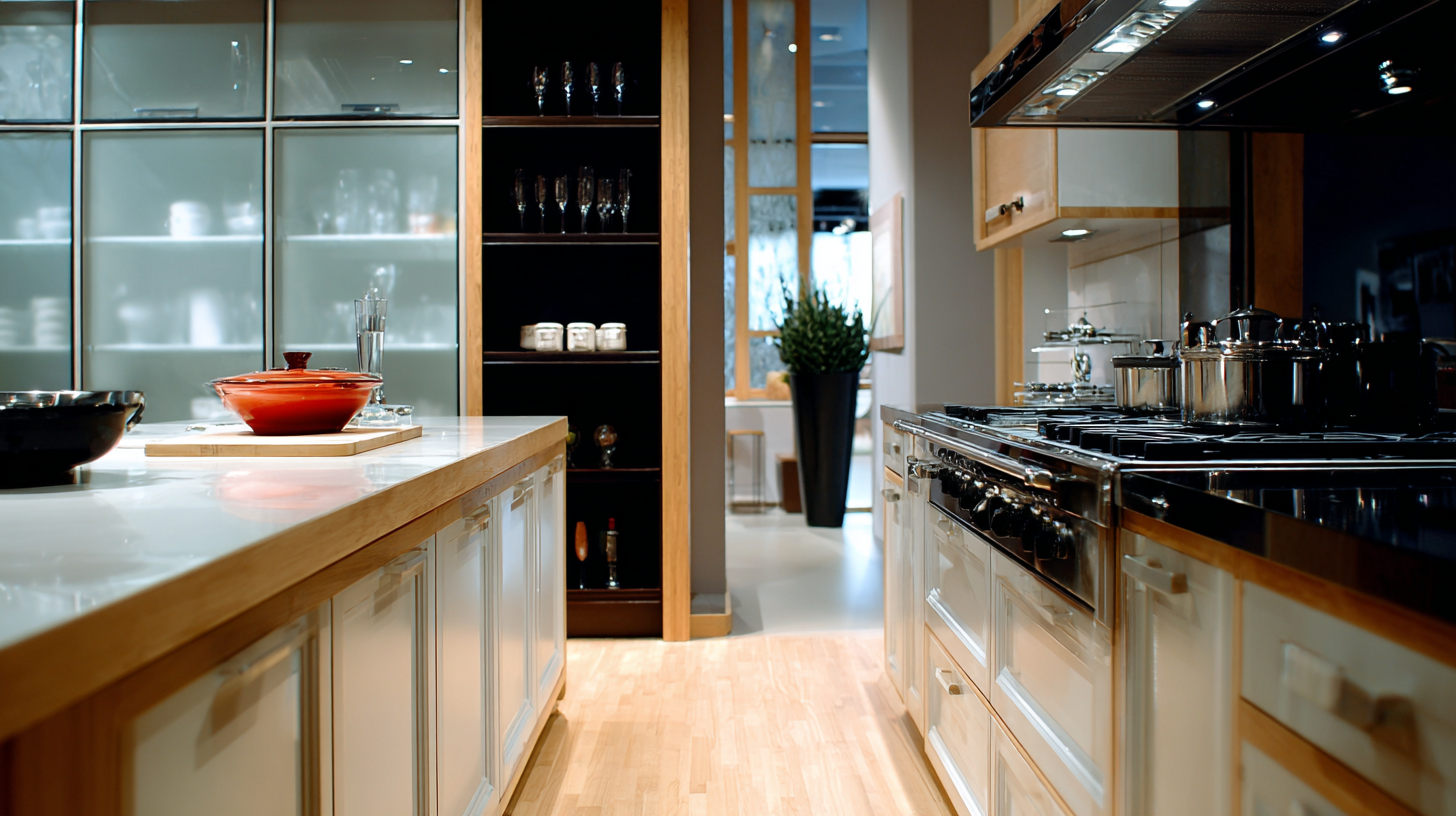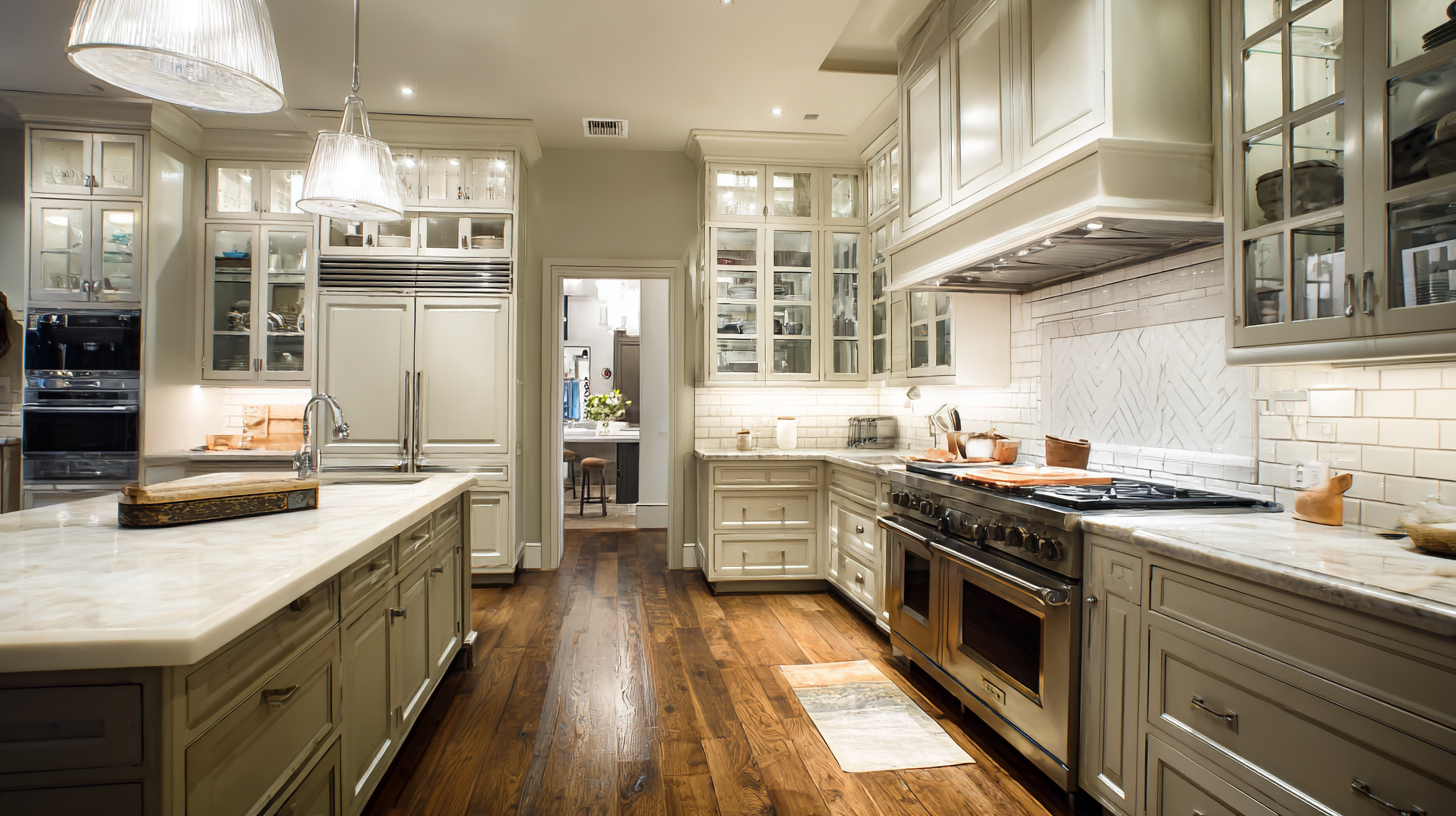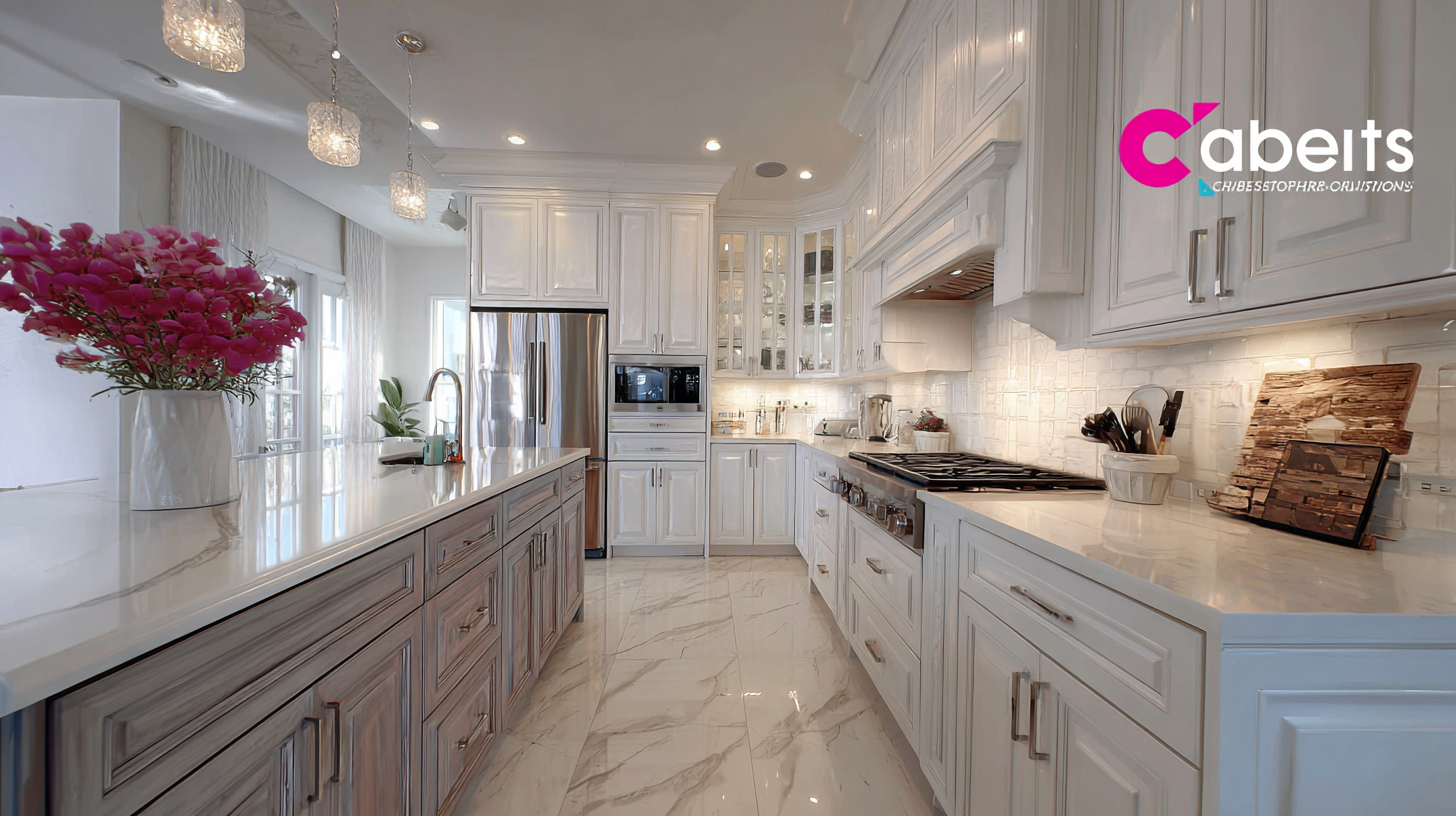In the rapidly evolving landscape of modern kitchen design, the significance of cabinets has transcended mere functionality to become a centerpiece of aesthetic innovation and practical utility. According to a recent report by the National Kitchen & Bath Association (NKBA), cabinets account for nearly 30% of the total kitchen remodel budget, highlighting their critical role in both cost and design. As we step into 2025, the industry's trends indicate a growing preference for smart storage solutions, with 55% of homeowners expressing a desire for cabinets that maximize space and optimize organization. This blog aims to explore the best cabinets that align with contemporary design aesthetics while delivering practical applications that meet the demands of modern living. From innovative materials to intelligent design features, the right cabinets can transform a kitchen into a functional yet stylish culinary haven.

The kitchen cabinetry market in India has been experiencing substantial growth, driven by the increasing demand for modern and functional designs. Quality manufacturers play a pivotal role in meeting this demand, offering a wide array of materials such as wood, plastic, metal, and glass. Consumers are now more discerning, looking for cabinets that not only enhance aesthetics but also provide durability and practicality. This trend is accompanied by a growing interest in customized options and semi-custom cabinets that cater to individual tastes and space requirements, ultimately reshaping the market dynamics.
The styles of kitchen cabinets have diversified significantly, from beadboard designs to sleek flat-panel installations. This evolution reflects homeowners' desires for unique and personal spaces. As industries adopt smart manufacturing technologies, products that incorporate advanced features, such as hidden refrigerators and IoT-enabled smart mirrors, are becoming increasingly prevalent. These innovations not only elevate the functionality of kitchen spaces but also resonate with the aspirations of modern consumers who seek both beauty and practicality in their homes. The focus on quality craftsmanship and innovative design is essential for manufacturers looking to thrive in this competitive landscape.

When delving into modern kitchen design, selecting the right cabinets is crucial for both aesthetics and functionality. High-end cabinet materials are increasingly being recognized for their durability, making them ideal for kitchens where wear and tear is inevitable. For instance, advanced composite materials used in kitchen cabinetry are gaining popularity due to their impressive resistance to moisture, heat, and everyday impacts. With the market for composite materials projected to grow from $3.25 billion in 2022 to $5.50 billion by 2030, reaching a CAGR of 6.80%, they are set to transform the durability landscape of kitchen designs.

Another noteworthy material trend is the use of thermoplastics, which have a substantial market size of $29.41 billion in 2023, expected to rise to $60.35 billion by 2032. These materials not only enhance resistance to stains and scratching but also support a wider range of design options. As kitchens evolve into multifunctional spaces, the integration of high-performing materials becomes paramount, allowing designers and homeowners alike to create environments that withstand the rigors of daily use while maintaining their visual appeal.
When considering kitchen renovations, the choice between custom and prefabricated cabinets is pivotal in modern kitchen design. Custom cabinets offer a tailored solution, allowing homeowners to maximize space and express their unique style. With the ability to choose materials, finishes, and configurations, custom cabinets can perfectly fit the dimensions of any kitchen, enhancing both functionality and aesthetics. However, this bespoke approach often comes at a higher price point and longer lead times, which can be a deterrent for some homeowners.
On the other hand, prefabricated cabinets provide a more budget-friendly and accessible option. Available in standard sizes and finishes, these cabinets can be easily sourced and installed, making them a popular choice for quick renovations. While they may offer less flexibility in design, advancements in manufacturing have led to high-quality options that mimic the appearance of custom work. As homeowners weigh the practical applications of each option, it becomes clear that the decision ultimately hinges on individual needs, budget, and design aspirations.
In contemporary kitchen design, striking a balance between aesthetics and functionality is paramount. As we look toward 2025, emerging trends showcase a shift towards personalized spaces that cater to both style and practical needs. The embrace of natural wood finishes and fluted cabinet designs reflects a broader desire for warmth and sustainability in kitchen environments. This trend not only enhances the visual appeal of the space but also embodies craftsmanship that resonates with homeowners seeking a connection to their living environment.
In addition, color choices are evolving to become a focal point in kitchen design. Homeowners are shifting from bland neutrals to bold, vibrant hues that invigorate the heart of the home. The latest innovations also include integrated lighting and smart storage solutions that maximize functionality without compromising on style. These advancements illustrate a commitment to creating kitchens that serve as both functional workspaces and stylish hubs for family gatherings, highlighting the importance of thoughtful design in today’s kitchens.
This chart illustrates the popularity of various kitchen cabinet styles based on their aesthetic appeal and functional features. The data highlights how modern kitchen designs are evolving by balancing beauty and utility.
When considering a kitchen remodel, investing in premium kitchen cabinets may initially seem like a hefty expenditure. However, the long-term benefits often outweigh the upfront costs. High-quality cabinets not only enhance the aesthetic appeal of a kitchen but also offer durability and functionality that budget options may lack. As recent news indicates, savvy homeowners are finding that investing in superior cabinetry can lead to substantial returns, particularly when paired with elegant and lasting materials like stone countertops.
Additionally, the current trend of combining affordable cabinetry with high-end worktops illustrates a practical approach to modern kitchen design. This strategy allows homeowners to enjoy the benefits of premium surfaces while keeping cabinetry costs manageable. This blend of cost-effectiveness and quality is essential, especially in a volatile real estate market where small investments can significantly increase property value. A thoughtful approach to kitchen design prioritizes not only immediate visual impact but also long-term functionality, making the case for premium kitchen cabinets a prudent one.
| Cabinet Style | Material | Cost Range ($) | Durability (Years) | Maintenance Requirements | Resale Value Impact |
|---|---|---|---|---|---|
| Shaker | Maple | 450 - 1200 | 15 - 20 | Low | High |
| Contemporary | Laminate | 300 - 900 | 10 - 15 | Medium | Medium |
| Traditional | Cherry | 600 - 1500 | 20 - 25 | Low | High |
| Rustic | Reclaimed Wood | 800 - 2000 | 15 - 30 | High | Very High |
| Mid-Century Modern | Plywood | 500 - 1300 | 10 - 20 | Medium | High |
Whether you’re a homeowner, builder, or designer, you’ll find that our elegant cabinets create a breathtaking space that evokes positive emotions and encourages lasting memories. We invite you to explore our website to learn more about who we are and how we can help you.
Woodinville | Bellevue | Seattle | Kirkland | California | Berkeley | Walnut Creek | Roseville, CA
© 2025 Acadia Craft. Powered by Integrity Marketing Serving Woodinville, Kirkland, Bellevue & The Greater Seattle Area
